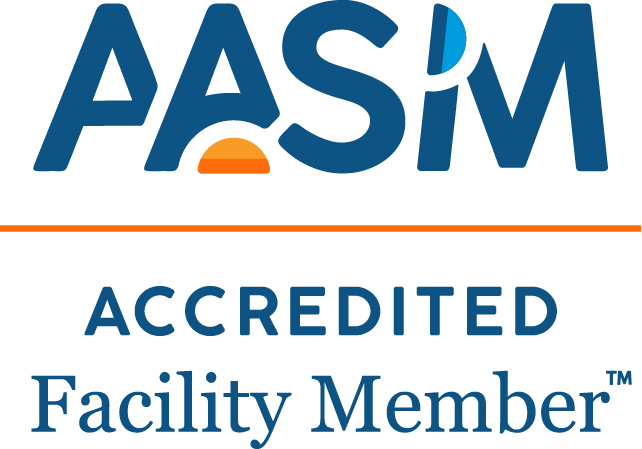CPAP Therapy FAQ
If you’ve been diagnosed with sleep apnea, your doctor may recommend CPAP therapy. This type of treatment is very effective for treating obstructive sleep apnea, and some people with central sleep apnea may also benefit from it.
Skip
How does CPAP therapy work?
CPAP therapy uses a small machine that supplies a continuous, mild flow of air through a hose to a mask or nosepiece. The air flow increases pressure in your throat, preventing your airway from collapsing as you breathe in.
Is it difficult to sleep with a CPAP device?
Since CPAP can reduce or eliminate sleep apnea, you’re likely to sleep much better. If you have problems adjusting to your CPAP device, our sleep health team can usually help resolve issues.
Difficulties can include:
- An uncomfortable or leaky mask. We make sure you have a mask that fits your face properly. If your jaw tends to fall open during sleep, causing leaks around the mask, a chin strap can help.
- A dry, stuffy nose. Using a saline nasal spray can help, or your doctor may prescribe a steroid nasal spray. The CPAP machines we prescribe have a built in humidifier and heated tube along with air filter. You can adjust the heat and humidity settings to your comfort.
- Irritated skin under the mask. Special moisturizers made for CPAP users can relieve this problem.
- A noisy pump. If your CPAP machine seems loud, check the air filter to see if it’s blocked. Also, new CPAP devices are much quieter than older models. You might be due for an upgrade. We recommend you consider updating your machine every 5 years.
- Discomfort from the air pressure. If you have trouble tolerating extra air pressure when you exhale, a bi-level CPAP machine may work better for you. This type of device lowers the pressure significantly when you breathe out.
If I’m unsure about using the device, is there any support to help me get started?
Yes. An important part of the Sleep Health Program at El Camino Health is to provide education and resources to help you adjust to both your condition and treatment. Our sleep health team will make sure your device is properly fitted and that you know how to use it.
If you feel anxious or concerned about using the device, you can come to the hospital for a PAP NAP to try it out under the guidance of sleep experts. We also offer a free CPAP/BIPAP Education class.
What’s a PAP NAP?
A PAP NAP allows you try CPAP therapy in a safe, supportive environment at the El Camino Health Sleep Lab. During a PAP NAP, you’ll work individually with a sleep technician who uses relaxation, deep breathing and desensitization techniques to help you become more comfortable with CPAP therapy.
How do I schedule a PAP NAP?
PAP NAPs are part of a complete assessment with a sleep specialist. Start by asking your doctor for a referral to El Camino Health's Sleep Health Program. Once the referral is made, you can call us at 408-866-4070.
How do I prepare for a PAP NAP?
The goal of your PAP NAP is to help you feel comfortable enough with CPAP therapy to fall asleep. To make that as easy as possible, follow these guidelines:
- The night before your PAP NAP, try to go to sleep one hour later than usual, and wake up one hour earlier than normal the next morning. With less sleep the night before, it’s more likely you’ll fall asleep during your PAP NAP.
- Avoid caffeine, nicotine and other stimulants the day of your appointment.
- Wear loose, comfortable clothing.
- We provide pillows and blankets, but you can bring your own if you prefer.
Where do I go for my PAP NAP?
Your PAP NAP will be in the Sleep Health Program sleep lab, in the main hospital at Los Gatos Hospital. Please arrive 15 minutes before your appointment and go to patient accounting in the lobby. You can register at that time, or pre-register by calling the sleep center at 408-866-4070.
What happens during a PAP NAP?
In a private room, a technician will fit you with the best mask for your face. He or she will use an adhesive to apply sensors to your neck and secure them with gauze or tape. You’ll wear a sensor belt around your chest and another around your abdomen, as well as a pulse oximeter on the tip of one finger to measure the oxygen level in your blood.
Your sleep technician will answer your questions and coach you on how to get comfortable with your CPAP device. If you have any problems with the device, he or she can make adjustments. Once you’re ready to begin, the technician will leave the room, which will be quiet and dark to make it easier for you to fall asleep. Monitors will record your heart rate, respiration and other information while you sleep.
If you need assistance during your nap, you can notify your technician. PAP NAP appointments usually take between one and two hours.
What if I can’t tolerate CPAP therapy?
In most cases, discomfort from using CPAP can be resolved, and most people who use this therapy are successful. However, if you can’t tolerate CPAP therapy, there are other remedies you can try. Depending on your specific condition, your doctor may suggest treatments such as an oral appliance, positional therapy or surgery. For people who are overweight, losing weight often relieves sleep apnea.
Can I contact someone with additional questions?
Feel free to call us at 408-866-4070 to learn more about PAP NAPS or CPAP therapy.
